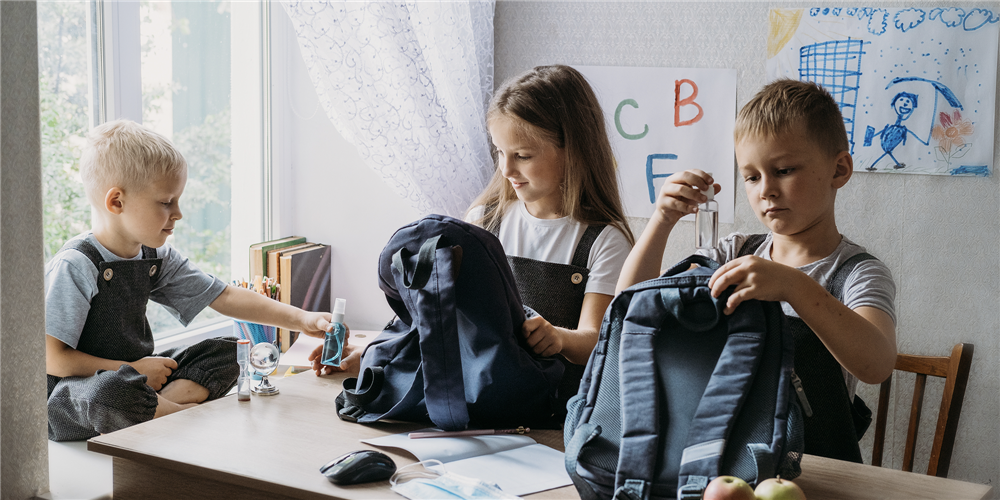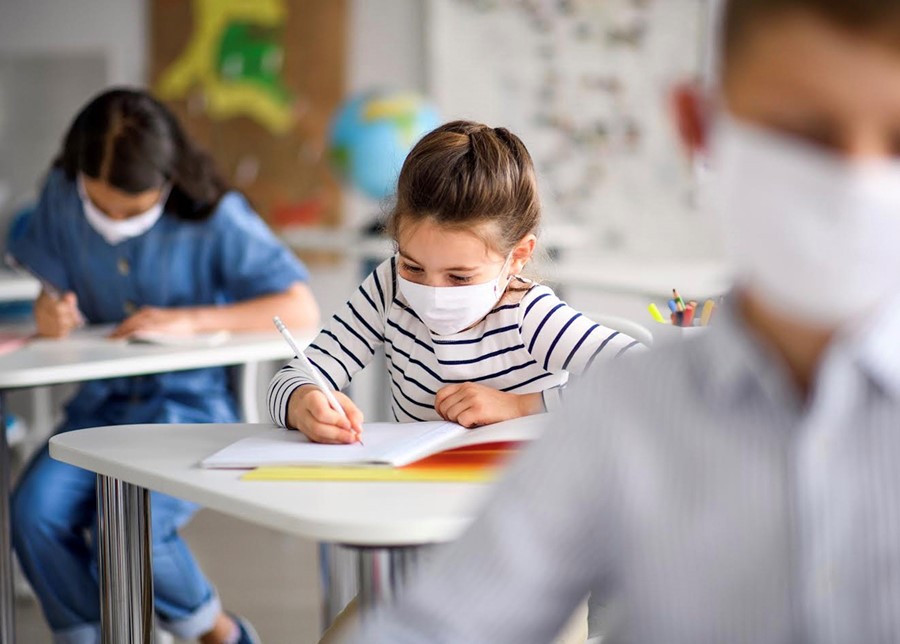Pupils have been returning to schools in England from 8 March, as part of The Prime Minister’s roadmap to cautiously ease lockdown restrictions.
If your child has gone back to school after a long period at home, it’s only natural for you both to be a little anxious. Heading back to the classroom after a Covid-19 lockdown, or period of isolation, can be a difficult experience for children whose routines have been disrupted by the pandemic.
And while some children were no doubt eager to return to old routines, others may still need a little help to adjust. So, it’s a good idea to think about how you can support your child and make it as stress-free as possible.
Here are our five top tips for easing that transition back to the classroom.

Be reassuring
During lockdown, we have been told to stay at home, remain socially distant from others and wash our hands regularly. Your child might have worries about the virus, restrictions in place or their education. So, it’s a good time to let them know why it’s now considered safe to go back. The government is basing its decisions on evidence that the risk of children becoming ill with coronavirus is far smaller than the benefits of being back in school.
Get into a sleep routine
Sleep contributes massively towards your child’s mental health and wellbeing. Try and help to build a healthy sleep routine over the coming days and weeks. Thinking about sleep too much or trying to force yourself to sleep doesn’t work and so don’t stress it! Help your child to relax both their mind and body well before bedtime.
Be available
Your child may want to come and ‘de-brief’ but maybe not when you’d expect, or even like. If you can, try to create space for talking in different ways. Going on a walk together or when clearing up after dinner are good options as there may be less pressure in these scenarios, than when sitting face-to-face.
Help with coping strategies
If your child is feeling stressed, speaking with friends or family can be a massive help. Doing regular exercise can reduce stress levels too and if you’re able to persuade them to give it a try, breathing techniques can be extremely effective. If you feel comfortable, you could also share your own worries about the current situation and ways you are managing these feelings.
Be positive
It could be helpful to chat with your child about the kind of things they’ve enjoyed during the pandemic and what they’re looking forward to. It may be that their favourite shop is reopening, that they’ll be able to see friends again, or just that they’ll be able to enjoy some degree of independence again.

Nutrition can also support us in three important ways during this time:
1. Maintaining energy levels
Foodstate Magnesium is essential for proper levels of physical/emotional energy and low levels can result in tiredness, fatigue, loss of stamina and insomnia. 80% of Brits are thought to be Magnesium deficient!
B Vitamins work very well together and are a great ‘pick-me-up’. Our Vitamin B Complex contains all eight B vitamins, plus vitamin C to help with vitamin B absorption.
Foodstate Iron would be a great support too, as it helps to avoid tiredness and fatigue.
2. Keeping stress and anxiety under control
Magnesium deficiency is linked to mood swings, anxiety, stress and poor concentration. It can help with memory loss and increases our learning ability too.
Vitamin B3 in particular helps with stress, anxiety, depression and aggressiveness. B vitamins in general support a healthy nervous system and promote better sleep patterns too.
3. Helping with memory and concentration
A deficiency in magnesium is also linked to poor concentration and memory loss.
And Vitamin B3 deficiency in particular, is associated with poor memory and confusion.
An essential fat in our Omega 3 fish oil is necessary for learning behaviour and is often referred to as ‘brain food’. It helps us concentrate and improves memory.






